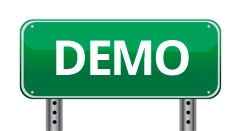For many years, the foreign exchange market has been used by bigger players as banks, corporations, institutions, and high-net worth individuals as an alternative investment arena. There are huge profits to be made in the forex market especially if you have the capital and the right tools to trade in the market. A forex corporate account is usually opened by companies that not only want to aggressively gain profits from their investments but also to hedge against currency fluctuations that could affect their business revenues. While a lot of the forex trading brokers advertise their services for individual retail forex traders, they also have the manpower and infrastructure to support the investment needs of companies looking to open an account. – Check out all the different forex trading accounts from FXCC.
Open a FREE Forex Demo Account
Now To Practice Forex Trading In A Real-life Trading & No-risk Environment!
There is no difference between trading for a forex individual account and for a forex corporate account other than perhaps the size of the account. The differences lie in the risks and opportunities that are faced by the corporate trader as compared to those of an individual trading in the forex market. Essentially, corporate forex traders open a corporate account to address the following risks:
- Transactional Risks: these risks have to do with business dealings involving payments in currencies other than the company’s home currency. In today’s business landscape, companies are not restricted to dealing partners and suppliers in their home country. Prevalent are business dealings that span geographic boundaries as with the buying and selling of good in another country and with sourcing materials from external business entities. When there is a time difference between the time when the cash flow is committed and the time when the actual payments are received or made, the company stands to bear some risks in currency fluctuations.

CLICK TO READ ALSO:
The Forex Corporate Account Management Team - Financial Accounting Risks: these are faced by companies with offshore operations that have to be reported in home currency equivalents in the consolidated financial reports. While there are no real losses sustained in terms of the actual value in the host country of the offshore business, changes in currency values can diminish the offshore operations’ book value on paper.
- Economic Risks: other than cash flow currency risks, there are also economic factors that come into play when it comes to any company’s financial bottom-line. These risks are faced by companies with competing products priced in another currency. Currency appreciation or depreciation, therefore, could cause the same price fluctuations on the comparative prices of the competing products. What a customer might find to be a less expensive option at one time could turn out to be more expensive when compared at a time when currency values have moved in favor of the currency in which the competing product is priced.
READ ALSO : Should you get a Forex Managed Accounts?
In all these currency risks faced by various companies and business entities, trading gains in a forex corporate account can serve to offset whatever losses they might sustain due to currency fluctuations. Forex trading presents companies with opportunities to create a buffer for the currency risks they face in their business operations. Having a forex corporate account is considered to be one of the important hedging tools for these companies.
Visit FXCC Forex Trading Account Homepage For More Info!





Comments are closed.